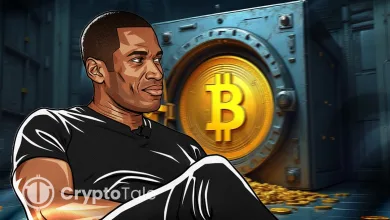Vitalik Buterin Warns on Ethereum Governance Amid Clash With Thiel

- Vitalik Buterin challenges Peter Thiel’s philosophy, stressing Ethereum’s cypherpunk roots.
- He supports gradual ossification but warns against closed or centralized governance models.
- Debate highlights Ethereum’s struggle to balance stability, innovation, and outside influence.
Ethereum co-founder Vitalik Buterin has reignited debate on Ethereum’s governance after questioning billionaire Peter Thiel’s political philosophy. His remarks drew attention to centralization risks and the importance of maintaining Ethereum’s cypherpunk foundations. The discussion unfolded on X, where Buterin responded to community concerns about Ethereum’s long-term direction and leadership structure.
Buterin Challenges Thiel’s Philosophy
Buterin shared a post reminding his followers that “Peter Thiel is, to put it mildly, not a cypherpunk.” He pointed to a section of a 2007 essay by Thiel called ‘The Straussian Moment’ that supports secrecy and international intelligence cooperation as a method of maintaining stability. The text was in stark contrast to the principles of privacy and decentralization, which crypto is built on.
Thiel has long been influenced by Straussian thought. At Stanford, he studied under Strauss-inspired professors and co-founded ‘The Stanford Review’, a conservative student paper. Over the years, he has expressed skepticism toward democracy, declaring in 2009 that freedom and democracy may not be compatible.
His business ventures also reflect this worldview. Palantir, which Thiel co-founded, has become a backbone of U.S. government surveillance. In crypto, Thiel holds stakes in Ethereum-linked firms, including a 9.1% share in BitMine Immersion Technologies and 7.5% in ETHZilla.
Buterin’s post underscores the conflict between cypherpunk principles and the approach used by Thiel. Cypherpunks are focused on openness, privacy, and personal liberty. The philosophy of Thiel encourages surveillance, confidentiality, and elite-based systems. The split left questions about the potential involvement of people such as Thiel in the future of Ethereum.
Gradual Ossification and Inclusive Research
The conversation shifted after a member of the community called on Ethereum to embrace the governance of Bitcoin. They claimed that little development would be less risky towards consolidation and the high power of the influential figures. The user suggested that Ethereum should eventually “ossify,” limiting future changes to the protocol.
Buterin agreed in part, acknowledging that Ethereum would need to decelerate significant modifications once it completes short-term scaling upgrades and technical debt cleanups. He characterized this strategy as a progressive ossification, which he believes has led to the long-term stability of Ethereum.
However, Buterin rejected calls for a closed or narrow leadership model. He argued instead for broadening Ethereum’s research and development community. According to him, the solution lies in “widening and balancing” core contributors rather than creating exclusionary circles.
His response highlighted a central dilemma in Ethereum’s governance. The network must safeguard against capture while still encouraging innovation and technical progress. The debate reflects growing tension over how Ethereum should balance stability with adaptability.
Related: Ethereum Seen as Neutral Base Layer for Wall Street Growth
Implications for Ethereum’s Roadmap
Buterin’s remarks add weight to the current debates on the future of Ethereum. The network is approaching important milestones such as scaling and protocol refinements. Ossification calls indicate that Ethereum will eventually stabilize to a more rigid structure, just like Bitcoin.
At the same time, Buterin’s emphasis on inclusivity signals a commitment to diversity in research and participation. His comments suggest that Ethereum’s path will be one of cautious upgrades paired with an open development culture.
The exchange also highlights concerns about influential investors on the direction of Ethereum. With Thiel’s substantial holdings in Ethereum-related companies, the members of the community still question how an external philosophy could shape governance.
The broader discussion goes beyond personalities. It reflects a deeper concern for Ethereum identity in a world where tokenization, stablecoins, and institutional adoption are growing fast. The conflict over decentralization and influence remains a key factor in the way Ethereum positions itself within a global economy.




